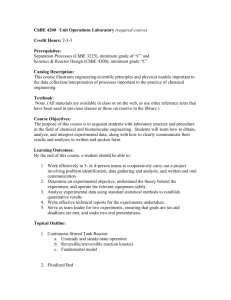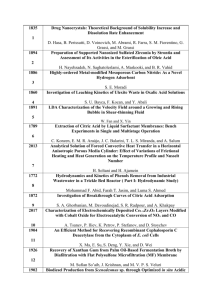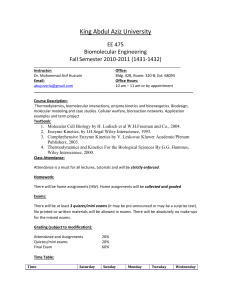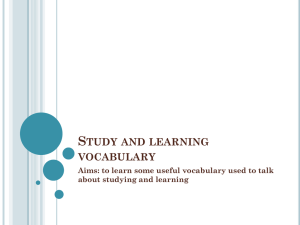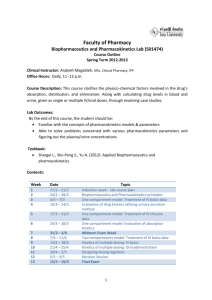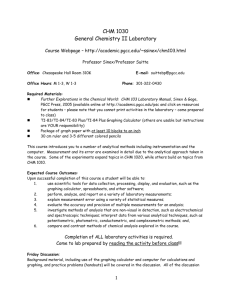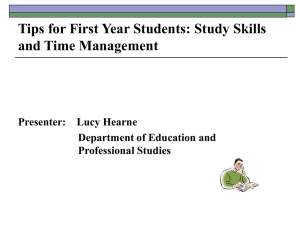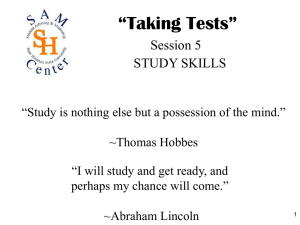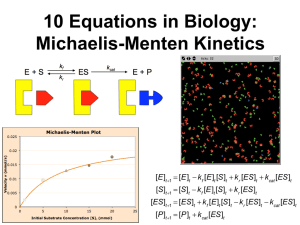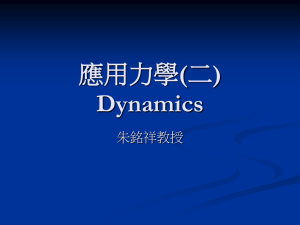here. - AChEGS
advertisement
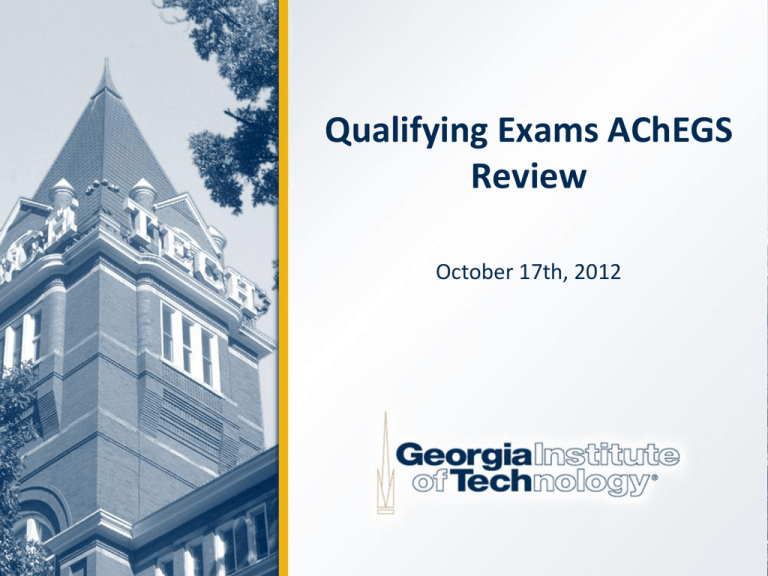
Qualifying Exams AChEGS Review October 17th, 2012 Disclaimer •The views and advice given in this presentation are solely those of the officers of AChEGS and not those of the faculty of the School of Chemical and Biomolecular Engineering. 2 Outline •Present test format •Discuss test content •Provide old qualifying exams •Answer questions and calm fears (somewhat) 3 Format •Written exam •Oral exam 4 Written exam format • Three hours • Eight questions 22.5 min/question • No notes, textbooks, or any other such materials – You need to be able to remember or derive important equations • Calculators are permitted but cannot have equations or information saved in them – TI-83, TI-89, similar are acceptable, but cannot have stored equations, printing, etc. 5 Written exam content • Exam question breakdown: – Two thermodynamics questions – Two kinetics/reactor design questions – Two transport questions – One additional question from the three above topics – One “miscellaneous” question • This is not set in stone 6 Recurring themes of written exam • Mass and energy balances (thermo, kinetics) • Raoult’s law and simple deviations from Raoult’s law (thermo) • CSTRs, PFRs, batch reactors (kinetics) • Non-isothermal reactor design (kinetics) • Shell balances (mass and heat transfer) • Navier-Stokes equations (momentum transfer) • Dimensionless numbers (This list is by no means exhaustive) 7 Written exam: How to pass • Study early and often • Memorize fundamental equations and dimensionless numbers (i.e. Re, Bi, Pe, Pr, St, Sc, Nu, etc.) • Start from fundamental equations mass/mole balances, transport analogies, etc. • TAKE ADVANTAGE OF PARTIAL CREDIT! ATTEMPT EVERY QUESTION! – You will be clueless for about 1.5 of the problems – No penalty for wrong answers write something! – One professor grades all answers to one problem • Need at least 4/8 to pass, to guarantee passing you need ~5.5/8 (my estimate) • Passing rate on January exam is around 65-70% 8 Written exam: How to pass • Study from textbooks – Fogler (kinetics); Smith, van Ness, and Abbott (thermo); Bird, Stewart, and Lightfoot (transport) 9 Written exam: How to pass • Study from old exams – Log onto AD domain on ChBE computer (computer lab) – \\chbefiles\Public\Past_Qualifying_Exams\Qualifiers – Do not cut or transfer files out of the folder! – http://achegs.chbe.gatech.edu/ • Central printing – http://faq.oit.gatech.edu/content/how-do-i-use-oitmobile-printing 10 Oral exam format • After written exam, you have one week to critique a journal article from the literature • Faculty panel of three professors (you will not know who until you show up to your exam) – Usually one easy, one medium, and one hard prof. • 15-20 minute PowerPoint presentation followed by 40-45 minute question and answer session 11 Oral exam content • Journal article from any discipline of chemical and biomolecular engineering as well as related disciplines – Thermodynamics, transport, kinetics, and reactor design – Biology, organic chemistry, physical chemistry, mathematics, modeling, etc. • Most papers will have both experimental results and mathematical modeling • You MUST work ALONE • You must present both a summary AND critique of the paper – Fail to critique and you will not pass 12 Oral exam: How to pass • Practice with old journal articles from oral exams – – – – – – Within your research group Within your study group Practice answering questions under pressure Practice using the whiteboard Practice timing Practice your English • Need 2 out of 3 professors to pass you • Pass rate 65-70% 13 Oral exam: Tips • Divide your presentation appropriately • Bring your own supplies – Laser pointer/clicker, dry-erase marker • • • • Do not bring any presentation aids or handouts Clarify questions before answering them Use white board Limit supplementary material – Do not answer a question with a slide • Be confident – Questions are intended to trip you up 14 Overall performance • 60-65% pass both written and oral exam on 1st attempt • 25-30% pass either written or oral exam on 1st attempt • 10-15% pass neither written nor oral exam on 1st attempt • Between January and May exams, pass rate on both exams is 90-95% (overall pass rate 91% from 2005-2012) • Pass/fail is based solely on performance, not on class size or any other factor • BOTTOM LINE: Work hard and you will pass (eventually)! 15 Acknowledgements • AChEGS officers • Dr. Koros 16 Thank you! •Questions? 17
